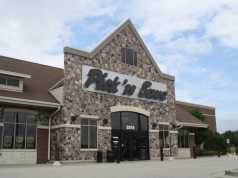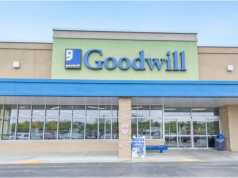Without a doubt, state budget negotiations are moving at a painfully slow pace. While this may be frustrating for some, it is also somewhat understandable. The budgets passed by Senate Democrats and Governor Jim Doyle and the budget passed by the Assembly Republicans contain major differences in regard to the fiscal direction in which our state will move over the next two years. Most specifically, the Senate Democrats’ budget proposes to increase state spending by over 23 percent and assess over $18 billion in new taxes on the citizens of our state over the next two years (over $1900 in new taxes per year for every man, woman and child) . The Assembly Republican plan rejects all of the proposed tax increases and forwards a spending plan that responsibly funds our government programs while living within our current revenue stream. Obviously, there are major differences that need to be worked out and, to date, only a few compromises have been offered – and even fewer agreements have been reached.
Realizing that agreement on a final, overall compromised budget may be weeks or maybe months away, the members of the State Assembly, in a bi-partisan effort, reached agreement last week on three important provisions that, if not addressed, could cause financial budget challenges for area public school districts and municipalities and potentially lead to dramatic increases in property taxes across the state.
Specifically, the three budget areas carved out and approved by strong bi-partisan votes in the State Assembly were state funding for public K-12 schools, shared revenue for local governments and a property tax levy cap plan.
In the case of funding for our public K-12 schools, the plan approved by the State Assembly actually matches Governor Doyle’s proposed school funding plan. If approved, the state would provide a record $12.3 billion in funding for our public schools over the next two years. The proposal would also approve additional funding for special education and make adjustments for low-revenue school districts.
The local government shared revenue package would maintain the same level of funding that has been provided over the past two years. While there would not be an increase, there would not be a decrease as some municipalities had feared.
Finally, the Assembly package re-institutes the same property tax levy cap that Governor Doyle signed into law just two years ago. Basically, local municipalities and counties could increase their tax levy by two percent or at a rate comparable to the new economic growth sustained in a given area. Additional tax increases would need to be approved by the voters in a referendum.
The state can fund each of these provisions without increasing taxes on the already over-burdened taxpayers of Wisconsin. In fact, even after approving these spending increases for K-12 education and local shared revenue, we still have remaining projected revenue that can be prioritized for other important programs or tax relief.
It is important that these three provisions be considered and passed by the State Senate and signed into law by Governor Doyle as soon as possible. Failure to do so could result in a statewide hike in property taxes of over $600 million.
According to the Legislative Fiscal Bureau, a nonpartisan service agency which provides fiscal analyses to the Wisconsin Legislature, if school funding levels are not calculated by October 15, districts could raise the revenue necessary to provide essential K-12 services through local property taxes. In addition, municipalities around the state are preparing their budgets and need to know how much money they will be receiving in state aid from shared revenue payments so they can set their local property tax levies.
Despite the fact that the Assembly passed these agreements to protect area property taxpayers on bi-partisan votes, Senate Democratic Majority Leader Judy Robson is now refusing to bring these bi-partisan proposals to a vote in the Senate. Senator Robson wants her entire budget approved as is, including the $18 billion in new taxes.
While I am hopeful that we will agree on a fiscally responsible overall budget that does not increase taxes, I believe we must act on the Assembly proposals to protect property taxpayers and I have strongly urged Senator Robson to immediately schedule Senate votes on these bi-partisan property tax protection proposals.
If you support these pro-public education and property tax protection proposals, I encourage you to contact Senator Judy Robson at (800) 3″-1468 or Sen.Robson (at) legis.wisconsin (dot) gov and ask her to schedule Assembly Bills (AB) 506 and 507 for votes in the State Senate.
As always, it has been a pleasure communicating with you. Please remember to communicate with me by calling (toll-free) 888-295-8750, or writing to me at the above U.S. Mail address or emailing me at Sen.Leibham (at) legis.wi (dot) gov.
It is an honor representing the residents of the 9th District in the State Senate!








